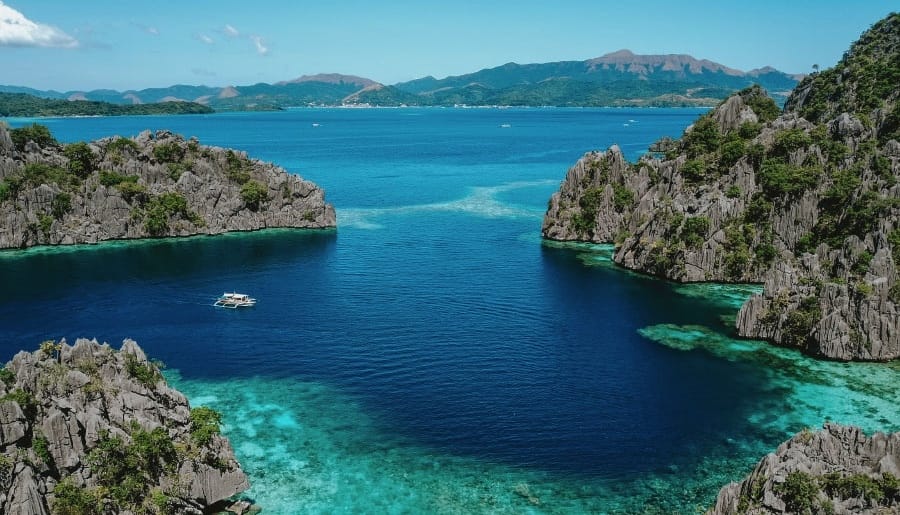Happy Wednesday {{first name | my friend}},
From the flightless charm of New Zealand’s kiwi to the vibrant coral kingdoms of Southeast Asia, this week’s edition is a journey through nature’s wonders. Plus: a 10-minute skin glow ritual I swear by, a citrus compound you’ll want more of, and a deep dive into how Portugal is reversing desertification…with forests, not machines. Let’s dive in. 🌍✨
To access Deep Dive articles every Wednesday, new videos every Friday, and so much more, upgrade to the ECL Membership.

Wednesday Wisdom
August 6th, 2025

🐿️ CREATURE FEATURE 🐿️

The Kiwi
The kiwi is New Zealand's iconic, flightless bird, famous for its round, fluffy body, long beak, and distinct silhouette, often described as a "pom-pom on legs." Shy and nocturnal, kiwis inhabit dense forests and wetlands in five distinct species, with females generally larger than males.
Their beak has nostrils at the tip letting them sniff out insects and worms hidden underground, aided by vibration sensors and facial whiskers to explore the dark. While their eyesight is weak, they make up for it with a strong sense of smell and hearing, and powerful legs that help them move quickly and dig for food.
Kiwis lay massive eggs, up to 15% of the female’s body weight. They nest in burrows dug into the forest floor. Conservation efforts are helping protect these beloved, truly unique birds as enduring symbols of New Zealand’s wild places.
WORD OF THE WEEK
Anemoia: Nostalgia for a time you’ve never known.
🌎 INTO THE…🌎

Via: coral.org
Into the Coral Triangle:
Covering just over 1.5% of the world’s oceans, the Coral Triangle spans Indonesia, Malaysia, the Philippines, Papua New Guinea, Timor-Leste, and the Solomon Islands. It is the planet’s most abundant marine life hotspot. Home to nearly 600 coral species and 2,000 types of reef fish, this “Amazon of the Seas” supports millions of people and protects coastlines with its vibrant reefs and lush mangroves.
But the Coral Triangle faces urgent threats from overfishing, pollution, and climate change, putting both its incredible biodiversity and the communities that depend on it at risk. Conserving this remarkable region is vital for the future of the world’s oceans.
⏰ 10 min hack
What if just 10 minutes a day could visibly transform your skin and boost your natural glow?
I’ve been using the BON CHARGE Red Light Face Mask, and it’s one of the most effective and relaxing self-care tools I’ve found. This wearable, no-hands mask uses clinically backed red and near-infrared light wavelengths to support collagen production, reduce fine lines, calm inflammation, and even help with skin tone and texture.
All without harsh chemicals or invasive treatments.
It’s lightweight, cordless, and easy to use while meditating, journaling, or just winding down for the night.
🌟 Just 10 minutes a day can make a real difference.
Use it consistently and watch your skin thank you.
✨ Click here to check it out and give your face the light it deserves.
Use code ECL and remove 20%!
Your skin is your largest organ—nourish it with nature’s wavelength.

🍎 NUTRITION 101 🍎
LIMONOIDS: Limonoids are a group of natural compounds found primarily in citrus fruits like oranges, lemons, and limes. They are valued for their antioxidant and potential cancer-fighting properties, supporting overall health when included in a balanced diet. You can discover food sources of limonoids and learn more about their benefits in this overview on citrus limonoids.


🔎 EARTH CONSCIOUS DEEP DIVE 🔍
(Preview, full article for ECL Members)
Reversing Portugal's Desertification

When people hear the word “desertification,” they often think of distant, arid landscapes. But in recent years, parts of Portugal, once lush and green, have slowly been drying out.
The soil cracks, rivers shrink, and once-fertile land can no longer grow food. But is the real problem just a lack of water? Or could it be the way we manage it? Check out how Lars is optimizing water management at his Wild Forest Garden project in Sara's documentary:
Upgrade to ECL Membership to read the rest.
Members get access to all Deep Dive articles, weekly solution-focused videos, expert interviews, recipe videos, ebooks, and other subscriber-only content.
Unlock a Healthier You...and a healthier planet:
- Improve health awareness: Deep Dive articles & recipe videos
- Protect ecosystems: expert video tutorials with leaders around the world
- Prioritize mental health: custom meditations for relieved stress
- Camaraderie: likeminded community (app coming soon!)
- Inspiration: members-only ebooks, personal picks, and DIY ideas
- Portion goes to support independent films, local food projects, and planting trees
